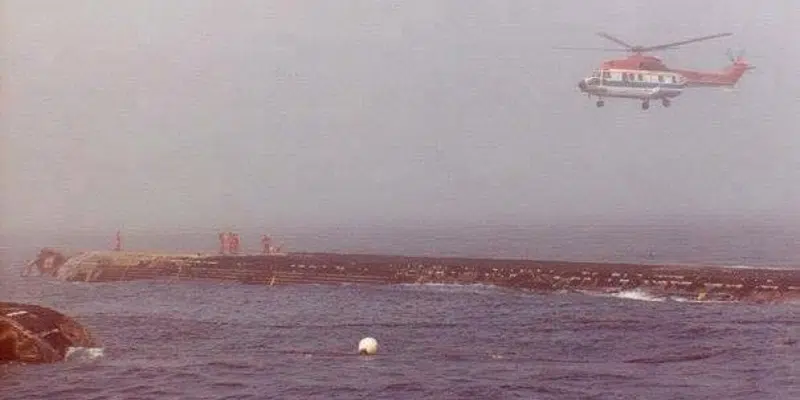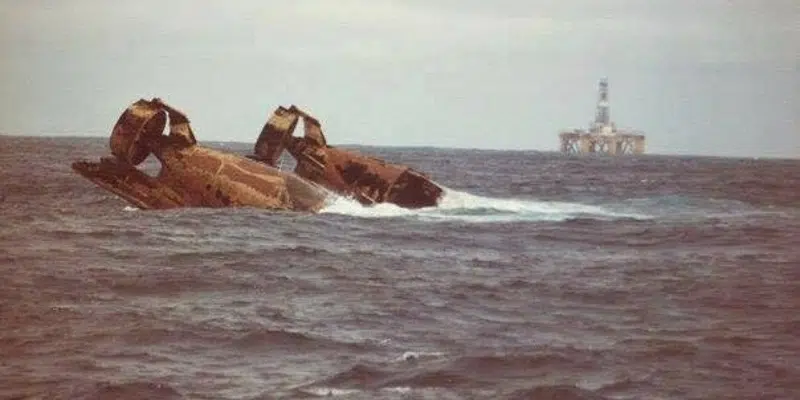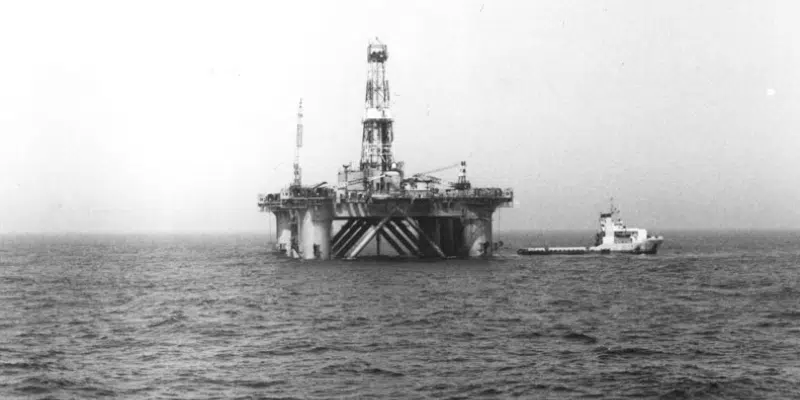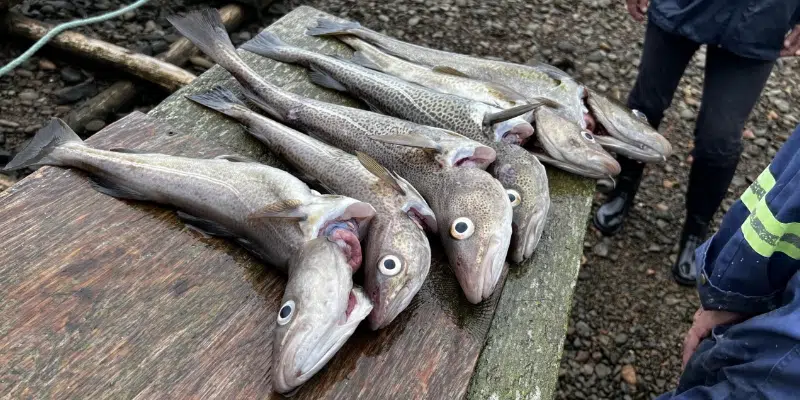It has been 38 years since one of the darkest events in recent Newfoundland history.
It was on the night of February 14, 1982 that a ferocious winter storm struck the offshore, claiming the lives of 84 men on board the Ocean Ranger.
A rogue wave during heavy seas struck the semi-submersible mobile drilling rig, breaking a porthole window and resulting in an inundation of water into the ballast control room, causing the rig to list. A mayday was sent just after midnight on the 15th, but rescue was hampered by the severe weather.
The last communication from the rig was around 1:30 indicating that the crew were going to the lifeboats. The rig sank shortly after 3:00 a.m..
The lives of all 84 crewmen were lost in the disaster.

In 1983, efforts were put into motion to relocate the wreck of the Ocean Ranger. The federal government deemed its position as a danger to shipping, as the wreck sat merely 30-metres below the water’s surface.
Work began that June to refloat the rig, however work was halted when two divers were killed on June 20. A third worker died in a second incident just six days later.
Ultimately, the Ocean Ranger was floated upside down—with her pontoons breaching the surface of the water—and sunk in deeper waters off the Grand Banks that August.

On the 38th anniversary of the sinking, new technology is being developed in the province to improve marine safety.
Virtual Marine received $524,000 in funding from the provincial government to build three life boat simulators locally.
President and CEO, Anthony Patterson say they worked with the technology and science following the Ocean Ranger disaster to learn how to evacuate using life boats. He says the province, industry and country have learned a lot about how to improve marine safety from the Ocean Ranger. A big part what happened related to evacuation with life boats.
The life boat technology won’t just benefit Newfoundland and Labrador. The three training simulators will be installed around the world, with data coming back to St. John’s to be used in further research.
Patterson says his company’s work is directly related to the lessons learned from the Ocean Ranger.























